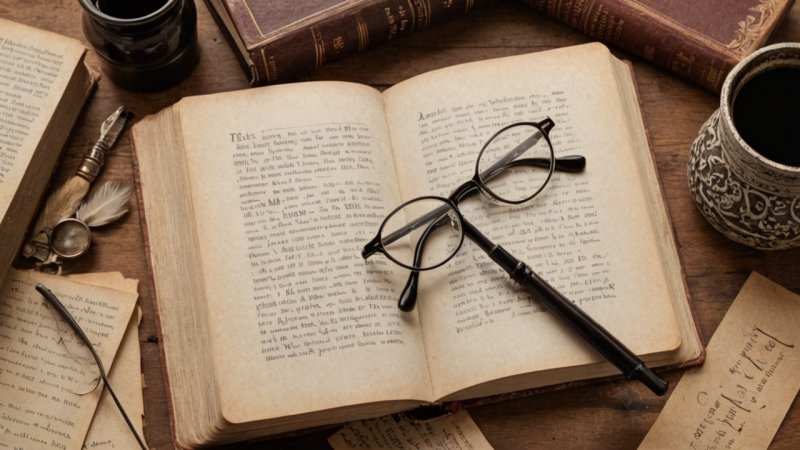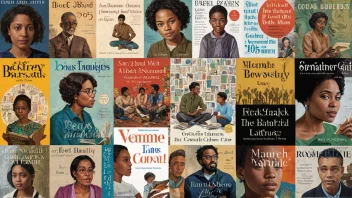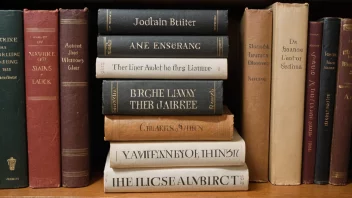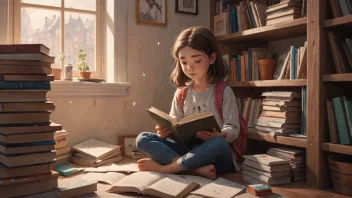Classic fiction has long been revered as the backbone of literature, offering rich narratives, profound themes, and intricate characterizations that resonate with readers across generations. However, for many beginners, the mere thought of diving into classic works can be daunting. This guide aims to demystify classic fiction, providing you with a roadmap to navigate through the timeless tales that have shaped literary history. Whether you are looking to understand the cultural significance of these works, enhance your vocabulary, or simply enjoy a good story, this guide will equip you with the tools you need to embark on your classic fiction journey.
Understanding Classic Fiction
Before you begin your exploration, it is essential to understand what constitutes classic fiction. Generally, classics are literary works that have stood the test of time, often recognized for their artistic merit, enduring themes, and cultural impact. They provide insights into the human experience, reflecting societal norms, conflicts, and emotions that remain relevant even today.
Characteristics of Classic Fiction
- Timeless Themes: Classics often address universal themes such as love, death, morality, and the quest for identity.
- Complex Characters: They feature well-developed characters who undergo significant growth or changes, presenting intricate psychological depth.
- Historical Context: Many classics are set against specific historical backdrops, offering readers a glimpse into different eras and cultures.
- Literary Techniques: Classic authors employ various literary devices, such as symbolism, allegory, and irony, enhancing the narrative's richness.
Choosing Your First Classic
With countless classics available, selecting your first one can be overwhelming. Here are some tips to help you make an informed choice:
Identify Your Interests
Think about what themes or genres you enjoy. Do you prefer romance, adventure, or mystery? This can guide you toward a classic that resonates with your existing interests. For example, if you enjoy romance, consider reading Pride and Prejudice by Jane Austen, while adventure enthusiasts might gravitate towards Treasure Island by Robert Louis Stevenson.
Start with Accessible Works
Some classics are more approachable than others. Consider starting with works that are known for their readability. Titles like The Great Gatsby by F. Scott Fitzgerald or To Kill a Mockingbird by Harper Lee are engaging and often recommended for beginners.
Consider Adaptations
Film and television adaptations can serve as an excellent introduction to classic literature. Watching an adaptation can provide context and enhance your understanding of the story. After seeing the film, you may find yourself eager to dive into the book.
Building a Reading Habit
Once you've selected your first classic, developing a reading habit is crucial for enjoying the experience fully.
Create a Reading Schedule
Set aside dedicated reading time each day, even if it's just 15-20 minutes. Consistency is key to building momentum. Choose a time when you can focus without distractions.
Join a Reading Group
Consider joining a book club or an online reading community. Discussing the book with others can enhance your understanding and appreciation of the text. It also provides motivation to stay committed to your reading goals.
Engaging with the Text
Reading classic fiction is not just about finishing the book but also about engaging with the content. Here are some strategies to deepen your experience:
Take Notes
As you read, jot down thoughts, questions, and reflections. Note passages that resonate with you or that you find particularly beautiful or challenging. This practice will enrich your reading experience and provide material for discussion with others.
Research the Author and Historical Context
Understanding the author’s background and the historical context in which the work was written can provide valuable insights. Look up biographies, literary critiques, or historical overviews related to the book. This knowledge will enhance your appreciation of the themes and characters.
Exploring Literary Themes
Classic fiction often delves into profound themes that are worth exploring. Here are some common themes you may encounter:
Societal Norms and Class Structures
Many classics critique societal norms and class distinctions. For instance, Jane Eyre by Charlotte Brontë tackles issues of gender and class, while Great Expectations by Charles Dickens explores the impacts of social status and wealth.
Identity and Self-Discovery
Classics frequently explore the journey of self-discovery. In The Catcher in the Rye by J.D. Salinger, Holden Caulfield's quest for identity resonates with many readers who grapple with adolescence and societal expectations.
Morality and Ethics
Many classic novels delve into moral dilemmas and ethical questions. In works like The Picture of Dorian Gray by Oscar Wilde, readers are prompted to consider the implications of vanity and moral corruption.
Resources for Classic Literature
To further enhance your reading journey, consider utilizing the following resources:
Online Platforms
- Project Gutenberg: Offers thousands of free classic literature texts.
- Goodreads: A great platform for finding recommendations, reviews, and connecting with other readers.
- Literary Analysis Blogs: Many online blogs provide in-depth analyses and discussions of classic works.
Literary Podcasts and YouTube Channels
There are numerous podcasts and YouTube channels dedicated to discussing classic literature, offering insights and analyses that can deepen your understanding.
Overcoming Challenges
Reading classic fiction may come with its challenges. Here are some tips to help you overcome common obstacles:
Language and Style
Many classics were written in a different era, using language and stylistic choices that may feel unfamiliar. If you find yourself struggling, consider reading annotated editions or guides that provide explanations for archaic language.
Pacing Yourself
Don’t rush through your reading. Take your time to absorb the text, and don’t hesitate to reread passages that confuse you. It’s important to enjoy the process rather than simply focusing on completing the book.
Conclusion
Embarking on the journey of classic fiction can be a rewarding experience that opens up a world of literary treasures. By understanding what makes a work a classic, selecting the right books, building a reading habit, and engaging deeply with the text, you can cultivate a genuine love for literature that lasts a lifetime. Remember, the goal is not just to read classics but to appreciate their artistry and the timeless truths they convey. Happy reading!






